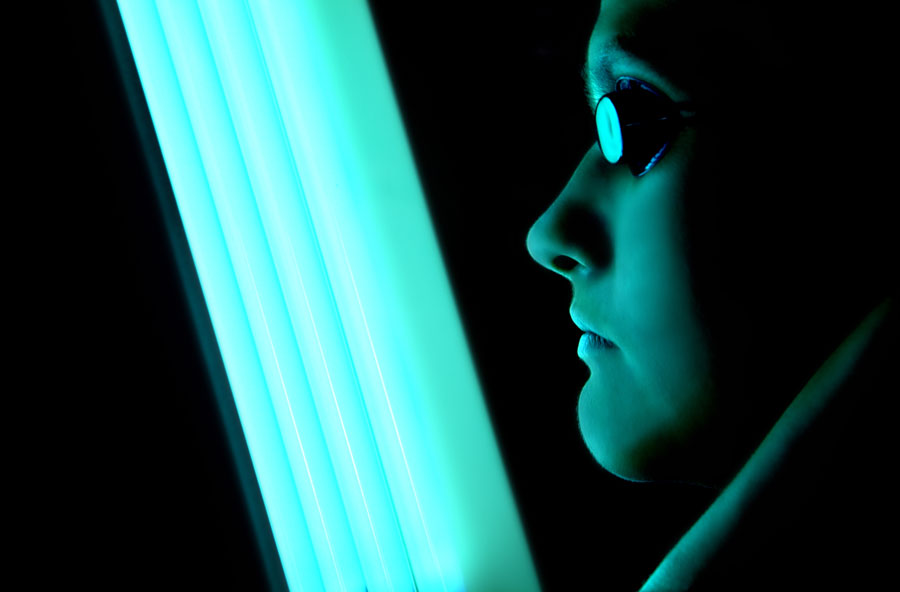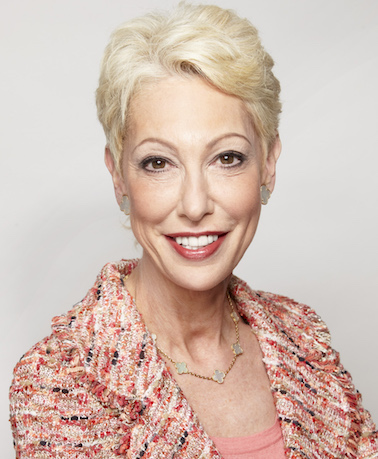Q: I don’t think I’m getting enough vitamin D. Can a tanning bed safely provide me with the vitamin D I need? Aren’t tanning beds a lot safer than tanning outdoors, since they emit a controlled dose of UV radiation?
No … no… no! A tanning bed will never provide you with the vitamin D that you need, nor is it safer than tanning outdoors. Not understanding the facts can literally mean the difference between life and death. Both ultraviolet A (UVA) and ultraviolet B (UVB) radiation cause cell damage that can lead to skin cancer. When you lie in an indoor tanning bed, you are exposed primarily to UVA, which penetrates deep into the surface of the skin, damaging the cells beneath and prematurely aging your skin. But it is UVB (the sun burning rays) — not UVA — which helps the skin make vitamin D, so you are increasing your risk of skin cancer without receiving any benefit!
As for the claim that tanning beds emit a controlled dose of UV radiation, a “controlled dose” of UV radiation from a tanning bed is a dangerous dose: Frequent tanners using high-pressure sunlamps may receive as much as 12 times the annual UVA dose compared to the dose they receive from sun exposure. It’s estimated that 10 minutes in a tanning bed matches the cancer-causing effects of 10 minutes in the Mediterranean summer sun.
This may be one reason that people who first use a tanning bed before age 35 increase their risk for melanoma, the deadliest form of skin cancer, by 75 percent. Indoor tanners are also 2.5 times more likely to develop squamous cell carcinoma and 1.5 times more likely to develop basal cell carcinoma, the two most common skin cancers. In addition to increasing your risk of skin cancer and accelerating signs of skin aging like wrinkles and brown spots, UV radiation also weakens the immune system — which further increases your risk for skin cancer.
While there is no question that vitamin D is essential for strong bones and a healthy immune system, current evidence does not support its role in the prevention of breast cancer, colorectal cancer, heart disease and stroke. Adults should obtain their recommended daily dose of 600 IU (international units) of vitamin D safely, from foods such as oily fish and fortified dairy products and cereals. And an easy way to ensure you are getting enough vitamin D is to take supplements. I strongly advise against exposure to artificial UV radiation (tanning beds), since the health risks — including skin cancer and premature skin aging — are significant and potentially life-threatening.
About the Expert
Deborah S. Sarnoff, MD, is clinical professor of dermatology at NYU School of Medicine, and the director of dermatology at COSMETIQUE Dermatology, Laser & Plastic Surgery, LLP, a private practice in Manhattan and Long Island. She coauthored Beauty and the Beam: Your Complete Guide to Cosmetic Laser Surgery and Instant Beauty: Getting Gorgeous on Your Lunch Break, both published by St. Martin’s Press. Dr. Sarnoff is the president of The Skin Cancer Foundation.





